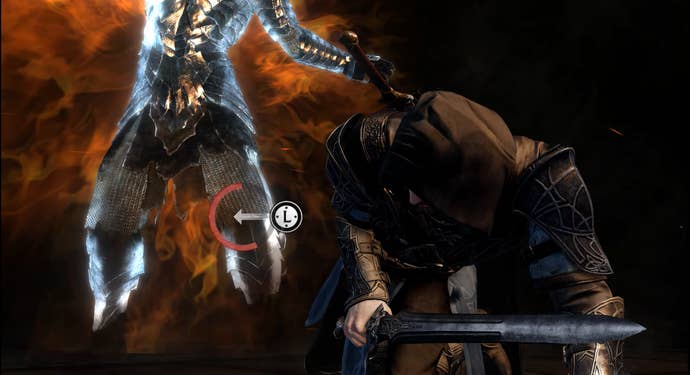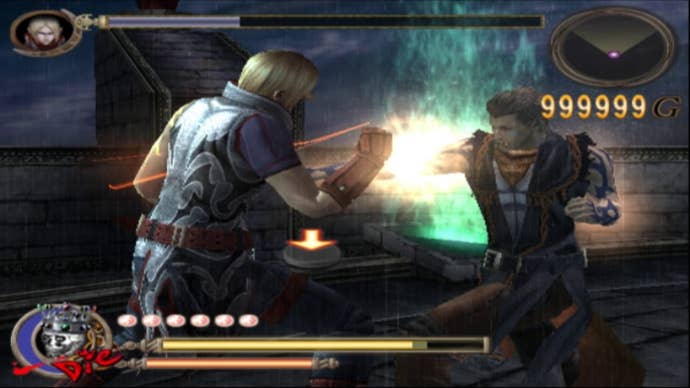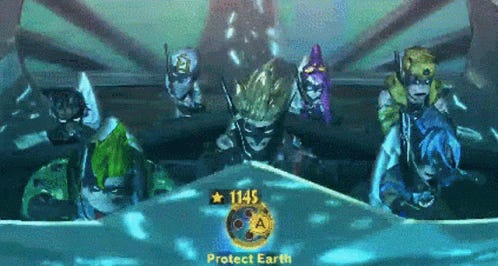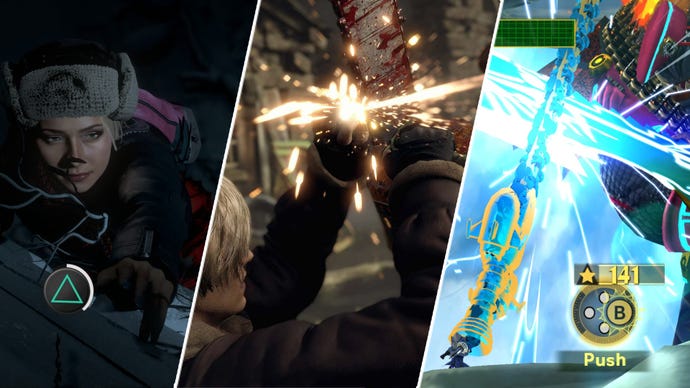In defence of QTEs: Why gaming's most derided mechanic is good, actually
The oft-maligned Quick Time Event has a place in gaming – even if years of rampant abuse of the mechanic have given it some bad press.
I’m sure a fair-few people have read this title and rolled their eyes. Really, I can’t blame you; there's a reason QTEs are hated. However, I’m here to convince you that when used correctly, every game developer's little guilty pleasure can actually be fantastic.
QTEs (or their Sunday name, 'Quick Time Events') revolve around bombarding the player with split-second button prompts. Their first well-known usages are commonly traced back to classic laserdisc games like Dragon’s Lair and Road Blaster. Said laserdisc games were more reminiscent of movies with button prompts than a games, mind you. It would be another 10-or-so years until QTEs would fully cross-over to more traditional games like Sega’s Die Hard Arcade or Shenmue (with Shenmue’s director Yu Suzuki being credited with coining the actual term “Quick Time Event”).
So why are these little events so unpopular? To really understand what makes a good QTE, we’re going to have to give some examples of terrible ones, first.
Imagine, you’ve spent a good 20 hours wading your way through Orc guts in Middle Earth: Shadow of Mordor. Talion’s story of revenge is finally coming to a close as you prepare yourself for an epic, climactic encounter with The Black Hand of Sauron. You finally reach your mortal enemy… and the entire bossfight is a sequence of button presses replacing the game’s pre-existing combat. That atrocity is the final thing you do in the game. It leaves a bad taste in your mouth; undoing the work of the many fantastic hours that come before.
So that's the first (and most egregious) for of bad QTE: gameplay replacement. This was a prominent thing during the seventh generation of consoles, replacing great sequences or boss fights using a game’s well-established mechanics with an interactive cutscene. Deathstroke in Arkham Origins, Navarro in Uncharted – the list goes on. There are times where the QTE fight works. Resident Evil 4’s knife fight with Krauser comes to mind, but the key there was that it wasn't your final encounter with Leon’s rival, and more of a silly cutscene.
Resident Evil 4 moves us along to the other worst offender of in the QTE kingdom: Instant death QTEs. Did you decide to put your controller down to watch a cutscene? Whoops, you missed a button prompt and died! Time to watch it all again. And, of course, you can't skip it – that would be silly. One of the worst offenders of this is the original Bayonetta, a game filled with these mid-cutscene deaths (made even worse by these deaths affecting your ranking at the end of the levels).
Slightly less annoying, but way more prevalent, are 'mundane QTEs'. Think about God of War; how many times in that game did you have to mash the square button to lift up a door? A good mash can be used effectively to build tension, but what is the point when there’s no tension? These slow-time-events feel like filler, and have the opposite issue that Shadow of Mordor has: instead of replacing gameplay with a cutscene, they’re replacing what should be a cutscene with gameplay.

Bayonetta being one of the worst offenders is fairly ironic, as developer Platinum Games is the cream of the crop when it comes to good QTE usage.
Let’s take an example from Platinum’s magnum opus – Metal Gear Rising Revengance. As soon as things kick off, Raiden is tasked with fighting a lone Metal Gear Ray. Now, in the story of Metal Gear, the last time Raiden fought Ray he was armed to the teeth with a seemingly infinite amount of rocket launcher ammo.
This time, the White Devil is armed with nothing but a sword (and his cyborg body). After wailing at your opponent's feet for a while, suddenly Ray's giant blade arm flies down onto Raiden… and you block it! The butt-rock kicks in, and you're asked to frantically mash the X button. You’re transported instantly into the shoes of Raiden as he wills himself to hoist that 70ft behemoth over his head like Hulk Hogan at Wrestlemania 3.
The timing, the tension, the intentionality – it's the polar opposite of what I was talking about with the “mash to open door” prompts. Rather than turning what could have been a cutscene to meaningless gameplay, Rising takes what could’ve easily been a cutscene and makes the moment that much more impactful because of player input.

After completing Resident Evil 4, director Shinji Mikami went on to create the cult classic God Hand; a game almost exclusively about punching people. And as you punch people, protagonist Gene hoardes power. When you've got enough power, you can unleash the titular God Hand, which lets you punch people a lot faster. As you blast enemies with your combos, you can stun them, which in turn lets you perform Fist of the North Star-esque punch flurries by mashing buttons. Once again mimicking the actions of the character with your own input.
Later in the game you meet Azel: the owner of the Devil Hand, which – you guessed it – lets the wielder punch really fast. Since the hands are equals, Azel and Gene have the chance to burst into this flurry at the same time. This leads to that same mash-em-up gameplay, but now with the added context of a struggle to overpower your equal to really see who can punch the best (or mash the fastest). Mechanics, meet narrative.

Another Platinum masterwork – The Wonderful 101 – is filled to the brim with good QTEs. The finale "Mash A to protect earth" is sublime, and it's enhanced by the cast of support characters mashing along with you. Often, time will slow down for you to perform these split second heroic feats through the use of your 'unite morp0h' mechanic. It would be easy for the game to have you sit back and watch these moments, but instead you always feel like a part of the action in The Wonderful 101. It also helps that nearly every QTE in the game has a humorous cutscene in place if you happen to fail it. Incentives even in failure – not like the instant deaths in Bayonetta.
A lot of players incorrectly attribute QTEs to laziness. And I can’t say I’d ever fault someone if they played Shadow of Mordor once and wrote the mechanic off forever, sure. But, really, QTEs aren’t all bad. In fact; I think they’re fantastic when used correctly. When used to compliment and enhance gameplay, and not replace it, they're a balm – a moment of reflection, or climax, or relief.
And 2022 releases like Bayonetta 3, Sonic Frontiers, and Kirby and the Forgotten World all seem to get the message; deploying them sparingly, and with tact. So maybe the days of anticlimactic button press boss fights are long gone, we're entering a new QTE renaissance.
Let's just hope it's not a quick, timed event.

